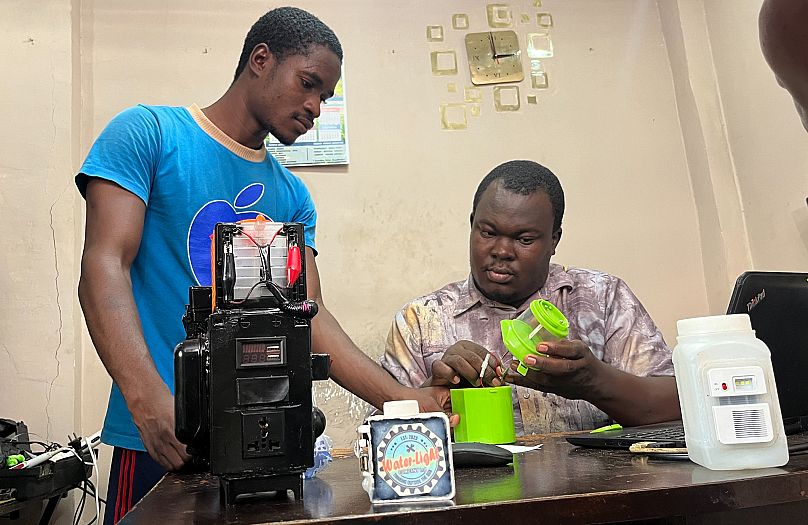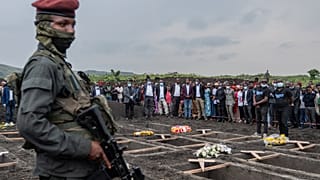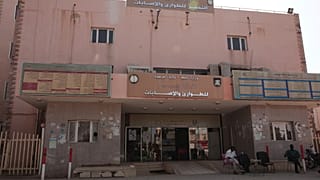Business Africa
This week on Business Africa: In Sierra Leone, a young inventor turns saltwater into electricity. In the DRC, two peace deals reignite tensions over natural resources. In Zimbabwe, a female entrepreneur harnesses superfoods to promote wellness.
DRC: Peace under influence, resources under pressure
Two international agreements were signed within a month in hopes of restoring peace in eastern Democratic Republic of Congo. One took place in Washington under U.S. mediation, the other in Doha with Qatar's support. While the stated goal is stability, writer and finance expert Junior Mbuyi warns of hidden agendas. These accords, he says, reveal that Central Africa is not in control of its own peace processes, as foreign powers continue to play a dominant role.
One key difference stands out. The Doha treaty explicitly names the M23 rebel group, while the Washington agreement avoids the subject altogether. According to Mbuyi, this reflects two different diplomatic approaches. The American approach is more formal and economically driven, while Qatar’s diplomacy aims to involve all stakeholders without offending local sensitivities.
In the background, the DRC’s vast reserves of cobalt and lithium are stirring intense competition. The tensions extend beyond diplomacy. In Tanganyika province, a dispute between the Congolese state and Australian firm AVZ Minerals over the enormous Manono lithium project highlights the complexity of the country’s mining landscape. The government suspended the company’s license, prompting arbitration before the International Centre for Settlement of Investment Disputes in Washington. Yet on July 18, Kinshasa signed a memorandum of understanding with U.S.-based KoBold Metals to develop a section of the same project.
This deal positions KoBold as a key actor in reviving the Roche Dure site, which had been stalled for months. However, AVZ Minerals, the project’s majority stakeholder, argues that the agreement breaches a provisional international ruling from January. That decision required Kinshasa to recognize its subsidiary Dathcom as the legitimate license holder and to safeguard its rights during the legal process.
Such disputes highlight the urgent need for transparency and sovereignty in managing natural resources. Junior Mbuyi insists the DRC must review its mining contracts and rebuild a solid legal framework to ensure the population benefits.
He calls for a strong and strategic response. The DRC must renegotiate its contracts, reform its mining code, and establish fair partnerships. Peace must not serve as a cover for foreign exploitation. Only deep reforms will allow the country’s wealth to truly benefit the Congolese people.
Sierra Leone: Local ingenuity powering energy inclusion
What if a simple mix of salt and water could light homes? That’s the innovation from Oswald Dundas, a young inventor in Sierra Leone.
With electricity access below 35 percent, he created a sustainable lamp powered by saltwater. No batteries or solar panels required.
Designed for rural communities, this eco-friendly technology was a finalist in a global competition and is bringing light to thousands of homes. A report by Eric Kawa.
Zimbabwe: Redefining wellness with 100 percent local ingredients
In Zimbabwe, a young entrepreneur is reviving nutritional traditions through local superfoods. Baobab, moringa and marula are at the heart of her all-natural smoothies.
In a market increasingly dominated by processed products, her business promotes a healthy, culturally rooted alternative. More than a wellness trend, it’s a quiet revolution supporting local knowledge and circular economic growth. A report by Keith Baptist.













01:17
Egypt's el-Sissi praises Trump's 'commitment' to stop Gaza war
Go to video
Belgian court reopens Patrice Lumumba murder case
00:28
South Africa declares national disaster over floods and rains that have killed 30 people
Go to video
Sierra Leone marks first National Day of Remembrance in honour of victims of civil war
01:02
Chad’s Déby wins 2026 African Peace Prize for role in Sudan refugee crisis
Go to video
US firm sues DR Congo over alleged bribery scheme